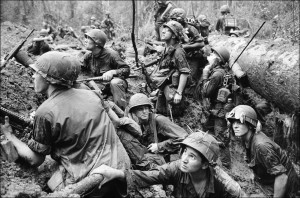2. Forsaken

My God, my God, why have You forsaken me? Far from my deliverance are the words of my groaning. (Psalm 22:1)
This Psalm begins with perhaps the most famous words Christ uttered from the cross: About the ninth hour Jesus cried out with a loud voice, saying, “Eli, Eli, lama sabachthani?” that is, “My God, My God, why have You forsaken Me?” (Matt 27:46) Don’t think for a moment that Christ did not know that He would be forsaken. This is a potent word. Other translations are: abandon, fail, leave alone, leave behind, and deserted. Christ was willing to be abandoned for you, to be left behind for you; to be deserted for you.
But actually, this question really is rhetorical. Christ knew why there was no answer, why He had been forsaken. He [God the Father] made Him [Jesus the Son] who knew no sin to be sin on our behalf, so that we might become the righteousness of God in Him. (1 Cor 5:21) This was not to be a time where the Son was to be delivered. Rather, it was a time where He was cursed, and suffered and died…forsaken—for your deliverance (cf. Deut 21:22)
As Christ cried out, how it must have broken the Father’s heart to not answer, to not even hear. What did it do to the Son’s heart?
Far from my deliverance. Isolated and removed, and indeed, unknown. Christ never needed deliverance before; and yet, when He needed it most, it was not for Him to have.
Are the words of my groaning. The Hebrew word for groaning is more often translated as roaring. Whereas we would think that groaning is a more muted and personal expression, it is actually loud, and should cause a reaction in anyone who would hear it. But God the Father did not listen. And the people at the foot of the cross? They mocked and ridiculed Him for it.
We know that Christ endured all this because of the joy that was before Him (Heb 12:2), but being in the midst of all this was overwhelming. Take a few minutes to read more of Psalm 22, especially verses 1-21, and experience what God gave up for Lent, and what Christ went through for you.

 My soul is among lions; I must lie among those who breathe forth fire, even the sons of men, whose teeth are spears and arrows and their tongue a sharp sword. Be exalted above the heavens, O God; let Your glory be above all the earth. They have prepared a net for my steps; my soul is bowed down; They dug a pit before me. (vs. 4-6)
My soul is among lions; I must lie among those who breathe forth fire, even the sons of men, whose teeth are spears and arrows and their tongue a sharp sword. Be exalted above the heavens, O God; let Your glory be above all the earth. They have prepared a net for my steps; my soul is bowed down; They dug a pit before me. (vs. 4-6)
 Last week I mentioned how context is critical to understanding and applying Scripture. I then showed the what the above verse was sandwiched in between:
Last week I mentioned how context is critical to understanding and applying Scripture. I then showed the what the above verse was sandwiched in between: